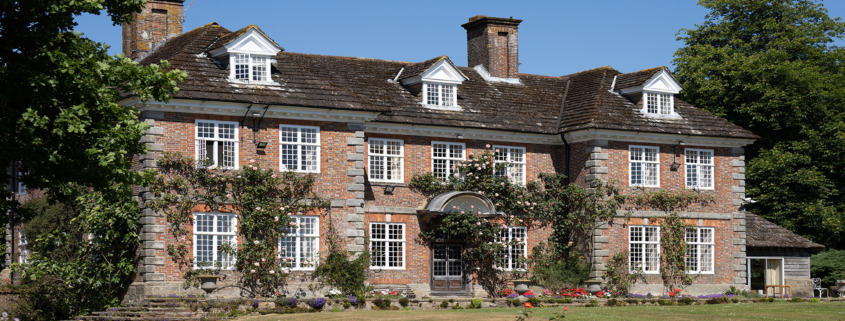The Allure of Historic Homes
Historic homes are full of character and a quintessential part of the charm of a small town. In a cookie-cutter world, an older home can offer warmth and personality not found in new construction. The allure of owning a historic home draws people to small, rural communities and keeps family stories alive for generations. If owning an older home is your dream, keep a few things in mind before embarking on the journey of historic home ownership.
Embrace the Features, Quirks, and Elements of the Architecture and Era and Region
Whether it is a Craftsman Cottage, Georgian, Neoclassical, or Greek Rival, every type of architecture has elements that reflect its era and architectural style. It is essential to be familiar with, respect, and preserve these features to maintain the home’s historical integrity. A local historian can offer detailed insight into features you may otherwise overlook. For instance, does the house have transoms over doors that open and close to allow airflow, brass fixtures, cut glass, built-ins, warming ovens in formal dining rooms, pocket doors, or picture molding used to prevent damage to plaster walls? Was the large wrap-around porch once used as a sleeping porch for hot nights before the air conditioner, or was the back room once the separate kitchen for fire prevention? Are the hardwood floors original, and what type of wood are they? Are the fireplaces shallow because they were once coal burning, and is the chimney functional? Why is there a narrow back stairwell, and what is the significance of the columns? Every home style has unique features and quirks that should be embraced and featured. When making repairs or renovations, try to use authentic materials whenever possible. This will help maintain the historical accuracy of your home and enhance its value. Consult with preservation experts or local suppliers to find suitable materials that match the original design.
Historic District Rules and Regulations
Most cities and towns have a designated historic district. These districts have a board that maintains the historical integrity of the town or city. Familiarize yourself with these guidelines to ensure you can make any necessary repairs or renovations while preserving the home’s character. If you plan to make changes or modifications to the house, you may be required to have it approved by this board. It is helpful to be familiar with this board and the regulations.
Energy Efficiency and Upkeep
Air conditioning, central heat and air, and insulated windows are all post-date historic homes. Investing in updates to make your home more energy efficient is well worth it in the long term. Request a list of updates, including who completed the work and when it was done. Then, you can assess what you might do to make your historic home function more efficiently for modern living. This can include adding insulation, upgrading windows, or installing energy-efficient appliances. Upkeep of an older home can be costly, so choosing efficient updates can significantly impact your monthly bills and overall budget.
Make it Personal
If walls could talk, oh, the stories older homes could tell! Research its history. Find out when it was built, the previous owners, and any significant events associated with the property. This information will add to your home’s charm and help you understand its unique features and potential maintenance needs.
Not only will you hear some great stories, but these stories will add to the home’s personality, warmth, and nostalgia. Part of the fun of owning a historic home is regaling guests with fun stories of its past. Knowing the history helps you appreciate your home’s unique personality as you make new memories.
Tax Incentives
There may be financial incentives to owning a historic home! Both state and federal tax incentives are available to those willing to invest in restoring homes and buildings. Your realtor can advise you about incentives that may be available to you. Revitalizing downtowns and historic areas is a priority for many communities. The incentives may be a deciding factor in taking on a new project!
Joining local historic home associations or organizations can provide you with a wealth of knowledge and resources. You can connect with other historic homeowners, attend workshops or seminars, and gain access to preservation grants or funding opportunities.
Ask the Experts
Choosing a realtor familiar with the area, the homes, and the town’s history may be the most critical first step in your search. A local realtor has insight into town tales, regulations, and the rich history of these homes and buildings. They know local, state, and federal incentives and local initiatives. Locals also know other locals. Putting you in touch with families, historians, and others with first-hand knowledge of the property is a perk of working with a local real estate expert! The team at Lewis Realty are neighbors you know and professionals you can trust! The real estate agents at Lewis Realty know the area, the people, and the homes in the area, giving them the expertise to lead and advise you every step in purchasing a historic home or property.
The allure of a historic home or renovating a historic building to house your dream restaurant or business may be more in reach than you think!
At Lewis Realty, we pride ourselves on being neighbors you know and professionals you can trust. Contact Lewis Realty today to find your Historic Home or Land here, or call us at (843) 921-2002




